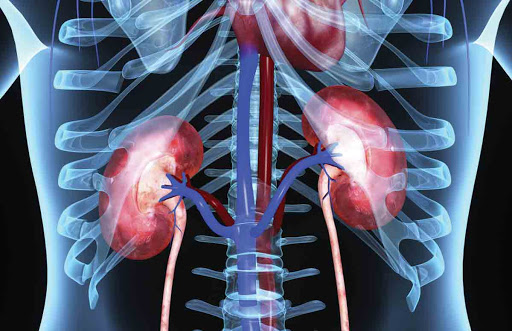Kidney Disease: Study Finds Allopurinol Used To Slow Kidney Disease To Be Ineffective
Source: Kidney Disease Jun 28, 2020 5 years, 5 months, 3 weeks, 5 days, 19 hours, 27 minutes ago
Kidney Disease: The results of a huge international clinical trial have shown that the drug allopurinol does not prevent worsening of kidney disease. The Australasian Kidney Trials Network led a large, two-year study, known as CKD-FIX, to assess the effectiveness of allopurinol, in slowing the rate of decline in kidney function and found that the drug failed to slow the progression of the disease.

The study findings were published in
The New England Journal of Medicine.
https://www.nejm.org/doi/full/10.1056/NEJMoa1915833
The researchers found the drug is ineffective in treating the condition, despite up to 20 per cent of kidney disease patients being prescribed the medication.
The Queensland Renal Transplant Service Medical Director and University of Queensland Professor of Medicine based at the Translational Research Institute, Dr David Johnson, said until now there had been little robust evidence to demonstrate allopurinol's benefit in slowing the rate of decline in kidney function.
Dr Johnson told Thailand Medical News, "We felt it was important to gather evidence of allopurinol's impact on patients with kidney disease who have never had gout."
He added, "In the CKD-FIX study, we compared the use of allopurinol to a placebo and found, to our surprise, that it made no difference to the rate of kidney function decline. Based on these results we believe there is no benefit in prescribing this medication, unless there is an additional specific medical reason, such as gout. This much awaited, high-quality evidence will inform global clinical guidelines for patient treatment.”
He further added, "It is important, though, that people with kidney disease who are already taking a medication like allopurinol to lower blood urate levels don't abruptly stop this treatment. They should discuss their kidney care management with their doctor first."
Dr Janak de Zoysa, lead Investigator-New Zealand from the University of Auckland and Waitemata District Health Board said trials like CKD-FIX were very important as they allowed doctors to optimise clinical practice.
Dr de Zoysa said, "Trials which show existing treatments to be not as effective as anticipated, allow for those medications to be stopped or not started in the first place, reducing unnecessary healthcare costs."
Allopurinol, commercially available since the late 1960s, helps the body reduce urate in the blood. High levels of the chemical are common among patients with chronic kidney disease, where it is associated with a higher risk of developing chronic kidney disease and its progression.
Associate Professor Dr Sunil Badve ,the George Institute for Global Health Senior Research Fellow and St George Hospital nephrologist, said the widely held view that elevated blood urate levels were responsible for rapid decline of kidney function was probably wrong.
Dr Badve said, "Based on our study results, it appears that elevated blood urate levels are most likely an indicator of reduced kidney function rather than a c
ause of reduced kidney function."
The clinical trial: CKD-FIX study ran across 31 hospitals in Australia and New Zealand, with more than 369 patients -with stage 3 or 4 chronic kidney disease who were at increased risk of further progression—taking part in the trial.
The study authors reported a 35% reduction in blood urate levels, which was maintained throughout the two-year study period for patients prescribed allopurinol. Kidney function, however, declined at similar rates for two treatment groups; allopurinol -3.33 mL/min/1.73 m2/year (95% CI -4·11 to -2·55) and control -3.23 mL/min/1.73 m2/year (95% CI -3·98 to -2·47). There was no difference in the quantity of protein in the urine and blood pressure between the groups.
Shockingly on a conservative scale, approximately 4 percent of the global population is affected by chronic kidney disease.
For more about
kidney disease, keep on logging to Thailand Medical News
HELP! Please help support this website by kindly making a donation to sustain this website and also all in all our initiatives to propel further research: https://www.thailandmedical.news/p/sponsorship
